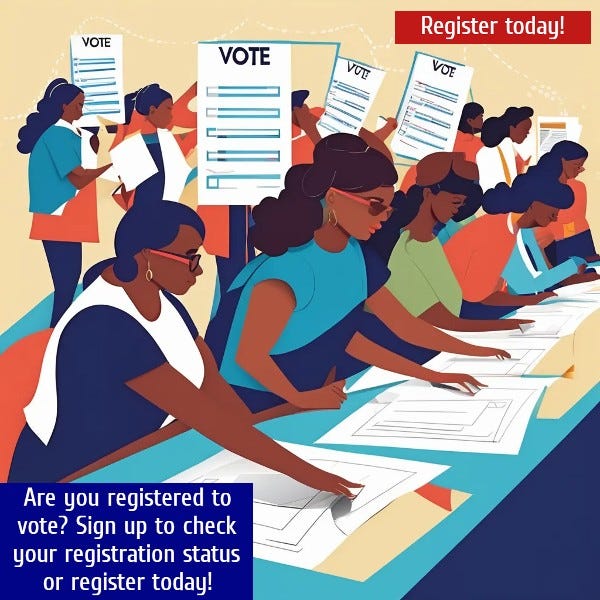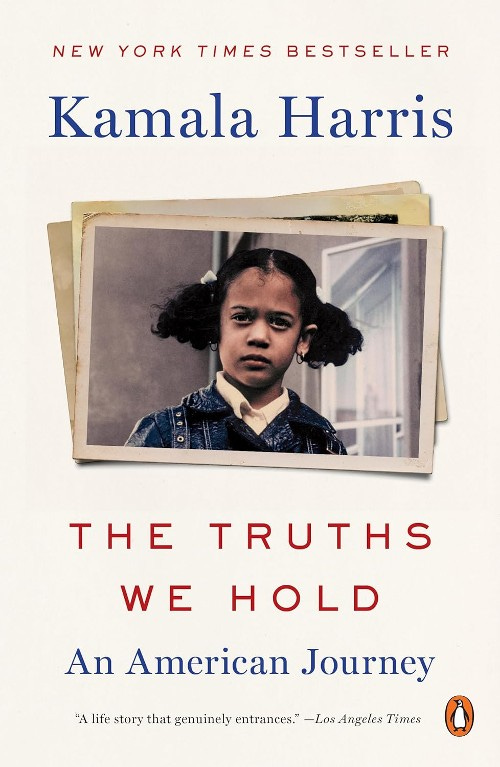Ann Coulter, never weigh in on 'foundational blacks' nor Kamala's ancestry
All the phrase "foundational blacks" does is pit black people against each other
Twerk. Bye Felicia. Woke. DEI.
I hate it when conservatives get ahold of a common phrase or word within the black community and use it all wrong — or weaponize it. But conservative commentator Ann Coulter’s latest rant is about a phrase I never have nor will use: Foundational Black.
If you’re lucky enough to not know what this means, FBA’s official site (no, I’m not linking it) defines the phrase as, “Foundational Black Americans are the descendants of the Black people who survived one [of] the greatest atrocities in recorded history — American slavery.”
Recommended Read: “Black folks, stop doing the work of white supremacists ~ The Africa versus African American conflict needs to stop”
On its own, the descriptor is fine. The problem with it is if you talk to people who self-identify as FBAs, there’s a 99.9% chance that the conversation will quickly switch to antagonistic comments about how “African people don’t like Black people,” insist on why all the political parties are against black people and we shouldn’t vote, and start spouting all kinds of hotep theories about a black woman’s place. (Side note: It’s funny as hell in comedy, but it’s very draining to meet this person in person.)
Either way, white women such as Ann Coulter should not be taking on her new assigned role as the Paper Bag Investigator by dissecting Vice President Kamala Harris’ level of blackness. Regardless of whether Harris looks biracial or like any of the women in the default image above, black people as a whole could do without her “caping” for black ancestry. We (read: me) neither want nor need Coulter’s opinion on anything.
Recommended Read: “Biracial and (not) proud ~ When your skinfolk don’t want to be claimed”
Additionally, contrary to Donald Trump’s belief, the Alpha Kappa Alpha sorority member and graduate of HBCU Howard University since 1986 “turned black” way before her second presidential run. Harris is not someone who is “passing” as black. She’s been proud to be biracial her whole life!
Her mother was hell bent on the 2024 Democratic presidential nominee learning about and embracing African-American history way before he knew who she was.
A few memories from Harris childhood:
Thursday nights at the Rainbow Sign, an organization founded in September 1971 with 11 black women, was where she would enjoy seeing black musicians, painters, poets, filmmakers and writers present in art galleries, dance studios, cinemas and other performance spaces.
In college, with her AKA sisters, she went to the National Mall to protest apartheid in South Africa.
She was elected as the president of the Black Law Students Association (BSLA) during her second year of law school at Oakland’s UC Hastings College of the Law.
Although her mother (Southern India-born Shyamala Gopalan) clearly had good taste in music (i.e. Aretha Franklin, Thelonious Monk, John Coltrane, Miles Davis), Harris’ mom wasn’t just known for her singing. She and Harris’ father (Jamaica-born Donald Harris) consistently brought Harris to civil rights marches as a child — so little that Harris was still in a stroller.
Harris’ godmother became friends with Shyamala at a 1960s civil rights march.
Harris’ grandmother Rajam Gopalan would not only take in domestic violence survivors, but Rajam and Harris’ grandfather P.V. Gopalan spent time in Zambia working with refugees.
And so on and so on.
From the basics of a “foundational black,” even outside of humanitarianism and activism, Harris is a U.S. citizen. She was born in Oakland, California, in 1964. If the argument is supposed to be that she is not black because her father is Jamaican, try saying that about Marcus Garvey and watch fists fly. (I also would bet my entire annual salary that Coulter has no clue who Garvey is.) Coulter’s statement is factually wrong — while excluding the “foundation” that Harris grew up in with her mother, surrounded by black people.
In a country where she had no family, they were her family — and she was theirs. From almost the moment she arrived from India, she chose and was welcomed to and enveloped in the black community. It was the foundation of her new American life.
-Kamala Harris discussing her mother in the memoir “The Truths We Hold”
ADVERTISEMENT ~ Amazon
As an Amazon affiliate, I earn a percentage from purchases with my referral links. I know some consumers are choosing to boycott Amazon for its DEI removal. However, after thinking about this thoroughly, I want to continue promoting cool products from small businesses, women-owned businesses and (specifically) Black-owned businesses who still feature their items on Amazon. As of the first date of Black History Month 2025, each new post will ALWAYS include a MINIMUM of one product sold by a Black-owned business. (I have visited the seller’s official site to verify that Amazon Black-owned logo.) I am (slowly) doing this with older, popular posts too. If you still choose to boycott, I 100% respect that decision.
And just as I don’t want to hear from FBAs criticizing who can and can’t be considered black or born in America — outside of these people’s parents and medical records — I definitely don’t want to hear white, conservative women who support Trump dictating how a black woman can be perceived within the African-American community. Ever.
Did you enjoy this post? You’re also welcome to check out my Substack columns “Black Girl In a Doggone World,” “BlackTechLogy,” “Homegrown Tales,” “I Do See Color,” “One Black Woman’s Vote” and “Window Shopping” too. Subscribe to this newsletter for the weekly posts every Wednesday until Election Day 2024. Thanks for reading!







